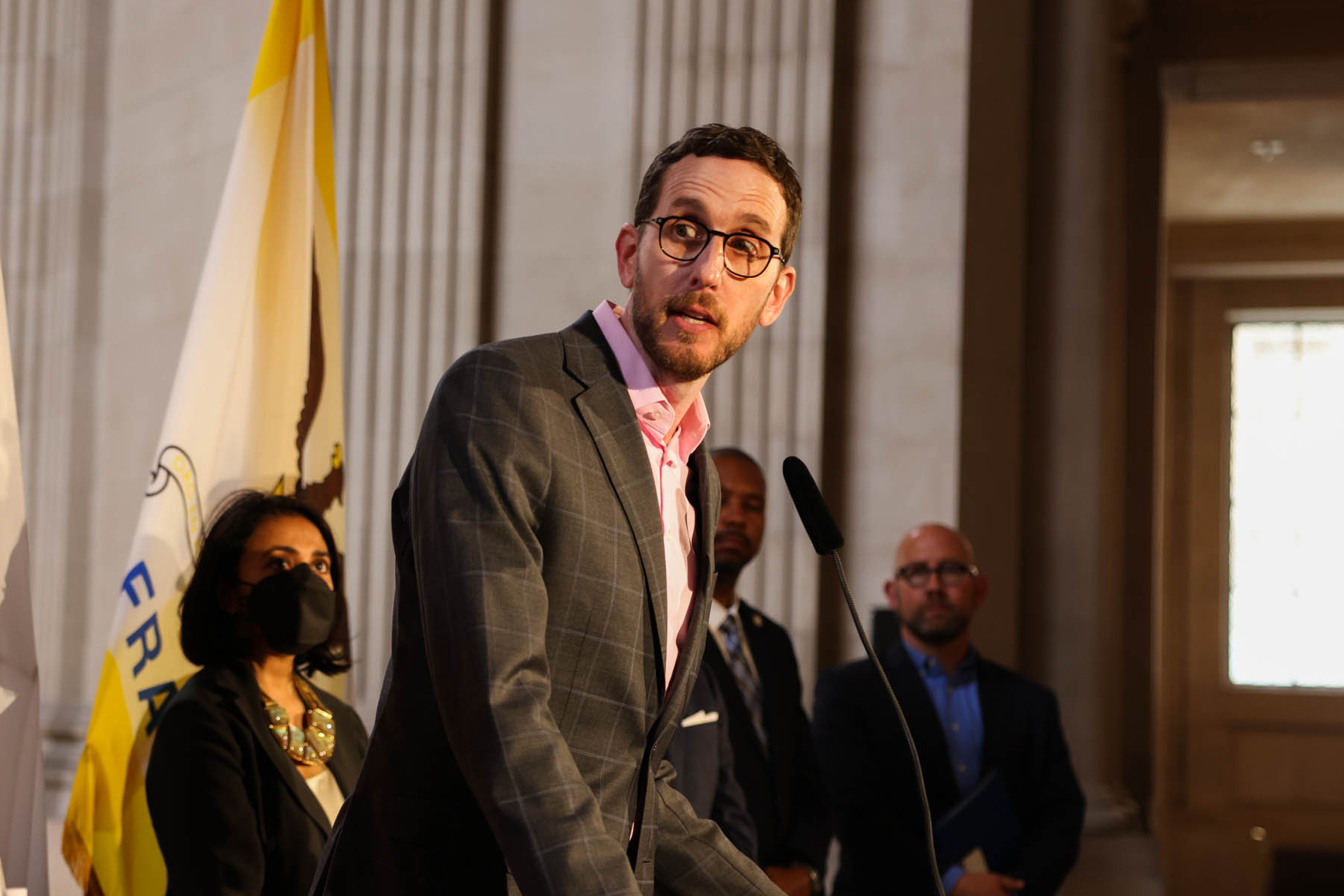The stunning collapse of Silicon Valley Bank on Friday sent shockwaves through the markets and left thousands of startups, small businesses and nonprofits wondering if and when they’re going to be able to access money in their accounts. Meanwhile, workers’ paychecks are also in limbo.
The Standard spoke with state Sen. Scott Wiener, D-San Francisco, on Saturday to get his assessment of the situation and what steps he hopes to see from the federal government’s intervention. The conversation has been lightly edited for brevity.
The Standard: I saw your tweets from Friday, and obviously, there’s a lot of concern about people not being made whole. I’m curious what you’re hearing is supposed to come down.
The situation at Silicon Valley Bank has left many on edge
— Senator Scott Wiener (@Scott_Wiener) March 11, 2023
SVB had $175B in deposits, a large % coming from SF small businesses, nonprofits & tech startups that are locked up due to the collapse.
There are big ramifications if the Fed & US Treasury don’t take fast action:🧵
Sen. Scott Wiener: Just to be clear, I’m not involved in conversations with the White House, the Fed and Treasury Department. I think there’s a pretty widely shared view that this needs to be resolved by Monday morning. It’s not just the risk of bank runs, but we’re also going to see companies not able to make payroll.
There is a narrative out there that it’s just about tech bros and venture capitalists and all the anti-tech stuff that sometimes surfaces in San Francisco and elsewhere, and that is not true. Certainly, plenty of small and midsize tech companies, including startups, are going to be deeply harmed, and that’s bad.
Tech is a major source of employment and tax revenue, so having serious damage in the startup tech sector is very harmful. But there are plenty of non-tech businesses I’m aware of just in San Francisco—some small restaurants and a bike shop—that aren’t going to be able to make payroll. There are affordable housing projects that also could be stalled if this doesn’t get resolved, because they were depending on SVB for their line of credit.
I’m glad you mentioned the housing issue, because I put together a story about how affordable housing developers are going to be harmed. Actually, quite a few of them do invest with Silicon Valley Bank—including organizations that partner with the San Francisco Housing Accelerator Fund, which was formerly in the Mayor’s Office.
I was told The Kelsey, a building being built over by Civic Center, was closing on a $52 million loan that was supposed to go through Friday. I think a lot of people don’t realize that affordable housing projects have a pretty constrained window of time in which they have to come together.
With you being someone who has really prioritized housing in your legislation, what do you think about the kind of trickle-down effect this could have on housing and particularly affordable housing in San Francisco?
These affordable housing projects are not projects that have a lot of room for error. Their financing is tight; the timetable is tight. And we start seeing credit frozen and these projects can access credit. I think the loan was on the day of closing pretty much, right? That is very harmful to any affordable housing project.
Rep. Katie Porter actually put out a tweet saying that the collapse of Silicon Valley Bank was totally avoidable. “Wall Street pushed a deregulation bill that allowed banks like SVB to take reckless risks. It passed, even as I and many others warned of the risks.“
The collapse of Silicon Valley Bank was totally avoidable.
— Rep. Katie Porter (@RepKatiePorter) March 11, 2023
In 2018, Wall Street pushed a deregulation bill that allowed banks like SVB to take reckless risks. It passed, even as I and many others warned of the risks.
I am writing legislation to reverse that law, S. 2155.
She’s writing legislation to reverse that law. What do you think about the oversight and the fact that these rating agencies had Silicon Valley Bank rated pretty highly?
I have enormous respect for Congresswoman Porter, and I’m glad she’s looking into it. I have seen a number of very concerning items created from the Trump administration rolling back on some of the regulatory requirements for these smaller regional banks, which the CEO of Silicon Valley Bank lobbied for. And so, I think job one is to stop the bleeding to make sure depositors are made whole and to make sure that they don’t have runs on other banks. We need to triage the situation now, and the federal government needs to act very, very quickly to stop the bleeding.
Once we have stabilized the situation, yes, there needs to be a postmortem about why this happened, what was happening at Silicon Valley Bank, who needs to be held accountable, and what needs to be different at regulatory levels so this doesn’t happen again, including feedback on what happened during the Trump administration to reduce regulation of these smaller banks. That is very important.
But, job No. 1 is to make sure workers are getting their paychecks, startups and small businesses are not experiencing a mass extinction event, and depositors get their money back.
